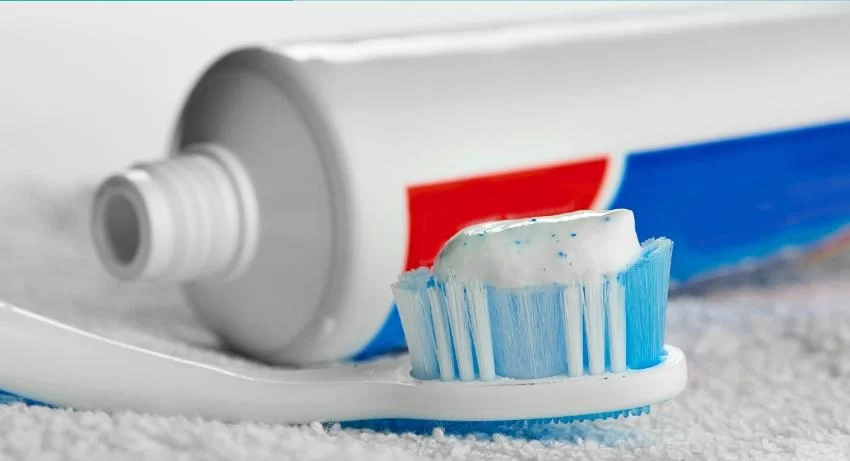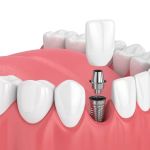
- Why-Tooth-Sensitivity-Occurs-After-Deep-Cleaning
- Common-Causes-Of-Sensitivity-Post-Cleaning
- Case-Study-Of-Tooth-Sensitivity-After-Cleaning
- Tips-For-Managing-Tooth-Sensitivity-After-Cleaning
- Preventive-Measures-To-Minimize-Sensitivity
- Professional-Support-And-Recommended-Services
1. Why Tooth Sensitivity Occurs After Deep Cleaning
Deep cleaning, medically known as scaling and root planing, is an essential dental procedure designed to remove plaque and tartar buildup beneath the gumline. Although highly effective in treating gum disease and improving oral health, many patients notice increased tooth sensitivity following this treatment.
This sensitivity happens because deep cleaning exposes parts of the tooth root that were previously covered by plaque or tartar. These exposed surfaces often contain microscopic tubules that lead directly to the tooth's nerve, making them more reactive to stimuli such as cold, heat, or even air.
Understanding the causes of tooth sensitivity after deep cleaning allows patients to manage expectations and take appropriate steps to soothe discomfort effectively.
2. Common Causes of Sensitivity Post-Cleaning
Several factors contribute to tooth sensitivity after a deep cleaning procedure:
2.1 Gum Recession and Root Exposure
Gum tissue may recede slightly after tartar removal, exposing dentin—the layer beneath enamel that is naturally more sensitive. This exposure heightens the teeth's response to temperature changes and physical contact.
2.2 Removal of Protective Deposits
Scaling removes hardened deposits that acted as a shield over sensitive tooth surfaces. Without this layer, teeth can react more strongly to everyday stimuli.
2.3 Inflammation and Healing Process
After deep cleaning, gum tissues may be inflamed temporarily, increasing sensitivity. This inflammation is part of the healing process, signaling tissue repair but causing discomfort during this phase.
3. Case Study of Tooth Sensitivity After Cleaning
Sarah, a 45-year-old patient with moderate gum disease, underwent deep cleaning to address persistent inflammation and bleeding. Within two days post-procedure, she experienced sharp sensitivity to cold beverages and air exposure, causing her to avoid certain foods.
Her dentist explained that this sensitivity was a normal reaction to root exposure and tissue healing. By following a tailored oral care routine and using desensitizing toothpaste recommended by Dentistry Toothtruth, Sarah noticed gradual relief within two weeks, leading to full comfort recovery.
This example illustrates how understanding causes and appropriate care can make the sensitivity manageable and temporary.
4. Tips for Managing Tooth Sensitivity After Cleaning
Effective management strategies can significantly improve comfort during the post-cleaning healing phase.
4.1 Use of Desensitizing Toothpaste
Toothpaste formulated for sensitive teeth contains compounds that block nerve transmission and seal exposed tubules, reducing sensitivity sensations.
4.2 Gentle Oral Hygiene Practices
Use a soft-bristled toothbrush and avoid aggressive brushing techniques that can worsen gum recession or irritation. Focus on gentle cleaning to maintain oral health without increasing discomfort.
4.3 Avoiding Extreme Temperatures
Refrain from consuming very hot or cold foods and drinks during the sensitive period to prevent triggering sharp pain.
4.4 Saltwater Rinses
Rinsing with warm saltwater can soothe inflamed gums and promote healing while maintaining cleanliness.
5. Preventive Measures to Minimize Sensitivity
Preventing sensitivity starts before and after the cleaning procedure:
5.1 Pre-Cleaning Consultation and Assessment
A thorough dental evaluation helps tailor the cleaning procedure to individual sensitivity risks and oral conditions, reducing excessive tissue trauma.
5.2 Professional Fluoride Treatments
Applying fluoride varnish after cleaning strengthens enamel and dentin, creating a barrier against sensitivity triggers.
5.3 Consistent Follow-Up Care
Regular dental checkups and cleanings at Dentistry Toothtruth ensure early detection of sensitivity issues and timely intervention.
6. Professional Support and Recommended Services
For persistent or severe tooth sensitivity after deep cleaning, professional care is essential. At Dentistry Toothtruth, experienced dental experts provide personalized treatment plans including advanced desensitizing therapies, laser treatments, and restorative options if necessary.
Our clinic also offers a wide range of recommended oral care products specifically designed to support sensitive teeth and enhance healing post-cleaning.
Real patient experiences highlight how combining expert guidance with proper home care leads to successful management of sensitivity, improving both comfort and oral health outcomes.







 Light Dental Studios of University Place4.0 (279 review)
Light Dental Studios of University Place4.0 (279 review) Nevada Dentistry & Braces4.0 (573 review)
Nevada Dentistry & Braces4.0 (573 review) Kirk Family Dentistry4.0 (487 review)
Kirk Family Dentistry4.0 (487 review) McNutt Orthodontics5.0 (61 review)
McNutt Orthodontics5.0 (61 review) Dentists of South Pasadena4.0 (124 review)
Dentists of South Pasadena4.0 (124 review) Spencer Dental & Braces4.0 (459 review)
Spencer Dental & Braces4.0 (459 review) The Importance of Oral Health Education During Pregnancy for a Healthy Pregnancy
The Importance of Oral Health Education During Pregnancy for a Healthy Pregnancy Best Tips for Brushing Your Teeth Properly for Healthy Gums: Essential Techniques for Oral Health
Best Tips for Brushing Your Teeth Properly for Healthy Gums: Essential Techniques for Oral Health Why Skipping Dental Checkups Can Lead to Bigger Oral Health Problems
Why Skipping Dental Checkups Can Lead to Bigger Oral Health Problems Advantages of Porcelain Dental Restorations
Advantages of Porcelain Dental Restorations How Can Diabetes Cause Tooth and Gum Problems? Preventing and Managing Oral Health Issues
How Can Diabetes Cause Tooth and Gum Problems? Preventing and Managing Oral Health Issues Healthy Habits for Promoting Good Oral Health and Hygiene: Tips for a Healthy Smile
Healthy Habits for Promoting Good Oral Health and Hygiene: Tips for a Healthy Smile